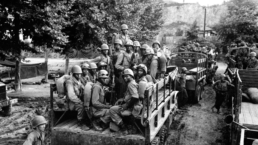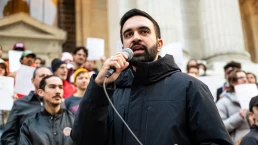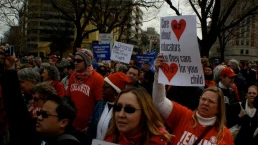The U.S. government values Black people when we serve in their wars, but not enough to invest in our education.
by Kinjo Kiema, In These Times
In late June, the Right won a decades-long fight to overturn affirmative action when the Supreme Court ruled, in Students for Fair Admissions Inc. v. President & Fellows of Harvard College, that considering race in college admissions violates the equal protection clause of the 14th Amendment. The case that ultimately landed before the court’s 6–3 right-wing majority was brought by Students for Fair Admissions, a conservative group that for years has challenged the admissions policies of schools like Harvard and the University of North Carolina. Across the country, conservatives cheered.
But buried in a seemingly small footnote in the decision was a caveat that is just as telling about race and opportunity in America. In Chief Justice John Roberts’ majority opinion, the Supreme Court allowed race-based admissions to continue in one place — military academies, which the Court declared have “distinct” and “compelling interests” that warrant an exception.

The decision’s finding that affirmative action is acceptable in the military, but nowhere else, encapsulates how the United States has never seen Black people as full citizens: declaring we aren’t worthy of educational investment, but are worth training to die in U.S. wars. It also demonstrates how for Black people, the opportunities offered by the military can amount to a no-win situation.
Recent Posts
Politicians Are Betraying Gen Z On Climate
July 10, 2025
Take Action Now While Gen-Zers thrift, knit, crochet, and find other ways to reduce our footprints, Trump and the GOP are greenlighting more climate…
Trump’s Deportation Threat Against Zohran Mamdani Is Shameful
July 10, 2025
Take Action Now In only half a year of Donald Trump’s presidency, he and his allies have turned deportation into an explicitly political threat…
Teachers Union Votes To Cut Ties To The Anti-Defamation League
July 10, 2025
Take Action Now In a momentous vote, the National Education Association voted to cut all ties with the Anti-Defamation League. The reason? “Despite…
2025 War Abolisher Awards Go To Albanese, Nader, Waters
July 9, 2025
Take Action Now The purpose of the awards is to honor and encourage support for those working to abolish the institution of war itself.By World…




